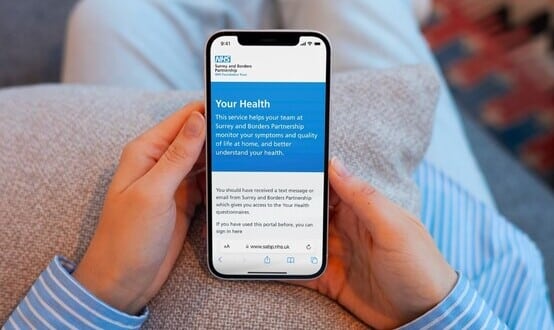Poll reveals scepticism surrounding NHS Long Term Plan digital milestones
- 18 January 2019

More than a quarter of Digital Health News readers believe none of the eight digital milestones in the NHS Long Term Plan will be achieved on time.
The milestones were part of the one chapter of the plan which focused solely on digital technology.
This included every patient in England being able to access a digital first primary care offer by 2023/24 and for there to be a CCIO or CIO on the board of every local NHS organisation by 2021/22.
One hundred readers took part in our poll which asked how many of the eight would be achieved on time with more than a quarter (27%) saying the believe none will.
This was closely followed by two and three which got 22% and 21% respectively.
On the other end of the scale, 4% of readers were a bit more optimistic and believed all of the milestones would be achieved while 14% went straight down the middle and predicted four.
[themify_box icon=”info” color=”gray”]
The NHS’s milestones for digital technology, as set out in the NHS Long Term Plan:
- During 2019 we will introduce controls to ensure new systems purchased by the NHS comply with agreed standards, including those set out in The Future of Healthcare [the preliminary policy paper published last October, which set out Matt Hancock’s digital vision for the NHS].
- By 2020, five geographies will deliver a longitudinal health and care record platform linking NHS and local authority organisations, three additional areas will follow in 2021.
- In 2020/21, people will have access to their care plan and communications from their care professionals via the NHS App; the care plan will move to the individual’s LHCR [Local Health Care Record] across the country over the next five years.
- By summer 2021, we will have 100% compliance with mandated cyber security standards across all NHS organisations in the health and care system.
- In 2021/22, we will have systems that support population health management in every Integrated Care System across England, with a Chief Clinical Information Officer or Chief Information Officer on the board of every local NHS organisation.
- By 2022/23, the Child Protection Information system will be extended to cover all healthcare settings, including general practices.
- By 2023/24 every patient in England will be able to access a digital first primary care offer.
- By 2024, secondary care providers in England, including acute, community and mental health care settings, will be fully digitised, including clinical and operational processes across all settings, locations and departments. Data will be captured, stored and transmitted electronically, supported by robust IT infrastructure and cyber security, and LHCRs [Local Health Care Records] will cover the whole country.
[/themify_box]





1 Comments
I am scarred that going digital is going to affect the elderly and people who are not digitally orientated.A lot of these may not even have an electronic device let alone using one to contact Nhs when they are in trouble! I fear this move to go digital is to try and sort the shortage of man power in Nhs which is a self inflicted problem caused by previous governments over last 30 years,by not training enough young students to become GPs and also making life of GPs rather hard and so discouraging young doctors to stay as full time GPs but either become salaried GPs or become locum GPs for agencies and avoid the responsibilities that GPs have.
Comments are closed.